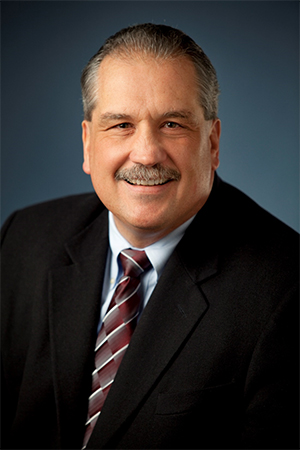Tesla driverless car death not surprising, expect more
Published: July 1, 2016 / Author: Shannon Roddel

Electric car maker Tesla Motors revealed Thursday (June 30) that federal regulators are investigating its autopilot software after a fatal crash involving a semitrailer. The U.S. National Highway Traffic Safety Administration opened the investigation after a man was killed May 7 in Williston, Florida, while driving a Model S with the self-driving mode engaged.
“This is the first known fatality,” according to automation expert Timothy Carone, a teaching professor in the Department of IT, Analytics, and Operations in the University of Notre Dame’s Mendoza College of Business. “And as our society transitions to using more systems like driverless cars, pilotless airplanes, driverless trucks and trains, and weapons, we will start to see more and more of these events.”
Author of the forthcoming book “Future Automation: Changes to Lives and to Businesses,” Carone discusses the transition to autonomous systems such as driverless cars, and says we should expect accidents.
“The number of fatalities associated with the use of these autonomous systems will start to rise as more and more are used,” he says. “Eventually, the number of fatalities and injuries will flatten out and decrease as these systems, which consist of artificial intelligence, big data and sensors for collecting data, begin to mature and become capable of handling unusual situations that are difficult to simulate in test environments.”
Carone says transitioning the knowledge human beings have acquired throughout decades of driving and flying over to autonomous systems like a driverless car or unmanned plane is a complex undertaking that will take years of work before society can recognize the benefits.
“It is this transitional period that we are entering,” Carone says. “There is a risk present in the transition from human decision making to autonomous system decision making. As autonomous systems take over more of the work for humans, said humans will then do less and their general skills will deteriorate. However, the autonomous system will not be of sufficient skills that it can deal with all problems. There will be a time when the autonomous system is not dealing correctly with a problem (e.g., an airplane icing issues) yet the humans will have lost their expertise and will not be able to take over from the autonomous system to prevent a tragedy.
“We are arriving at a point where machines have acquired enough capabilities with a blend of autonomous system, access to data and analytics, hydraulics, actuators, computers, sensors, wireless networks and/or a myriad of other components, that they can now begin not just replacing humans performing rote processes, but also humans whose work heretofore involved more decision-making and value judgments. Driving a car can seem like a rote process but it is not. We make complex decisions and value judgments continually during the day when we are behind the wheel. It is telling that theNHTSA is investigating the Tesla accident. I do not remember them showing up when my son had a fender-bender a few years ago. This is because the NHTSA recognizes that this is just the beginning of the transition period.”
A former astrophysicist, Carone specializes in data science, business intelligence, data mining, artificial intelligence and data security.
Contact: Timothy Carone, 847-226-0659, tcarone1@nd.edu
Related Stories




